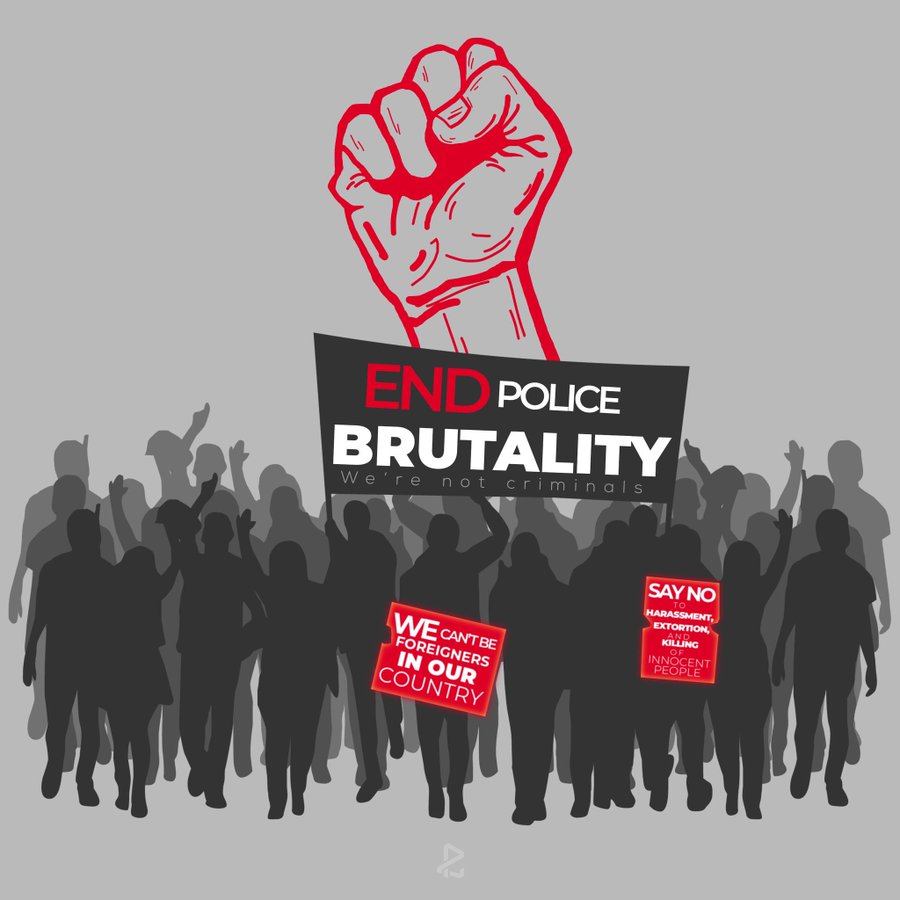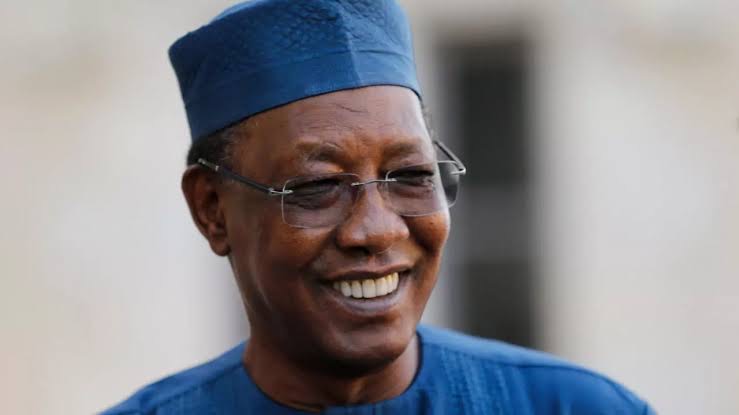END SARS Memorial: Has Anything Changed In The Past One Year?


In October 2020, young Nigerians took the streets to protest against alleged police brutality. They asked for the disbandment of the Special Anti-Robbery Squad (SARS) and the reform of the entire Nigerian Police Force. Looking back now, it appears as if the days and nights of protest and the alleged killing of protesters are all in vain.
There have been tough talks and promises but it mostly ends there. The Nigerian police force continues to perpetrate heinous crimes against innocent citizens. The Nigerian police force even threatened to stop the peaceful march scheduled to mark the first anniversary of the #EndSARS campaign.
October 20, 2021, marks the first anniversary of the #EndSARS campaign and the shootings at the Lekki toll gate. Youths and activists will gather to stage a peaceful protest for the END SARS Memorial in honor of the victims who lost their lives a year ago.
In loving memory🕊. #EndSARSMemorial pic.twitter.com/96ryCiRkHW
— The King’s Daughter 💎 (@iam_chyderah) October 20, 2021
https://twitter.com/mirexshotz/status/1450747218156216320?s=21
New year, same police force?

It is surprising how those in charge of the levels of power in a modern dispensation tend to go back to the ancient ethos of authority. The harsh response from the police against the planned memorial match is a sign that little has changed this past year. Nigeria’s police force appears to prefer the use of force to silence peaceful protests. This has got many Nigerians thinking why they will not apply the same force to bandits and terrorists.
Furthermore, this surprising threat has caught the attention of Nigerian youths and civil activists. It also stirred questions and thoughts about what has changed after the protest that caused many deaths. Additionally, the threat also raised different concerns about whether the police have learned their lessons and changed their ways.
In the past year, incidents of brutality have been reported. This includes a report by Amnesty International citing police brutality and human rights violations in southeast Nigeria from January to June 2021. Also, between October 2020 and September 2021, records of the Global Human Rights revealed that 187 lives had been lost to extrajudicial killings in Nigeria.
Compensations are not enough
Recall, the President of the Federal Republic of Nigeria, Muhammadu Buhari, took two weeks to respond to the protesters, delivering a speech on October 22–two days after the Lekki shootings last year.
He made a series of promises, including banning SARS, bringing erring officers to book, and setting up committees of inquiry in all states, including the Federal Capital Territory, Abuja.
However, the president, through the Lagos State Judicial Panel of Inquiry panel, compensated a total sum of N171 million (approx. $416,240) as compensation to 31 petitioners last year. Another man named Chidiebere Nwadi was compensated with a sum of 7.5 million Naira (approx. $18,256) after spending six years in prison and being harassed by the police for not giving a sum of ten thousand Naira.
A few days ago, the government also added a new compensation amount totaling a sum of 91 million to 16 new petitioners involving victims of brutality, harassment, extortion, and extrajudicial killings by the Nigerian police officers. With the new compensations, a total of N262 million (approx. $637,748) has been given to petitioners as compensation.
https://twitter.com/sdin_jacob/status/1371600765496725508?s=21
https://twitter.com/muhabarishaji/status/1330067343746150406?s=21
Today, many still feel these compensations aren’t enough to console victims of police brutality. Also, not all the promises and demands have been fulfilled.
One year later and these demands have not been met.
– Protesters are still in jail
– No justice for victims of police
– No increase in police salary
– No psychological evaluation for policemen
– No conclusive judicial panel#endsarsmemorial pic.twitter.com/gZRyx4bnxG— Kelvin Odanz (@MrOdanz) October 20, 2021
I choose not to remember today only as a day of mourning but a reminder of the day all Nigerians, young and old, regardless of their tribe, religion, gender, political or social background, united as one for a singular cause. Today is my own Independence Day. #EndSARSMemorial
— Sam Otigba (@SamuelOtigba) October 20, 2021
Nigerian youths aren’t criminals

An accumulation of absurd activities and operations of the SARS/FSARS under the Nigerian Police Force gave birth to the #EndSARS campaign, a decentralized social movement. It is essential to know that the Nigerian government created SARS in 1992 to combat robbery across the country.
As time went on, however, unlawful practices crawled into its operations. The squad became notorious for profiling innocent youths with dreadlocks, ripped jeans, or expensive cars as internet fraudsters. Furthermore, many efforts to stop these activities were unsuccessful, including the Anti-Torture Act in 2017 and the enactment of the Police Act in 2020.
Profiling of Nigerian youths as criminals became the modus operandi of the SARS/FSARS until October 8, 2020, which is the day when there was a massive protest in Abuja, Lagos, Jos, Ibadan, Enugu, and other major cities in Nigeria. The nationwide movement resulted in the #ENDSARS protest.
Before the campaign, there were several reports of ill-treatment, harassment, and extrajudicial killings by the SARS/FSARS, especially between 2017-2020. However, two incidents sparked the youth protests demanding the end of the squad. Firstly, the death of a young Nigerian in Ughelli, Delta State, on October 3, 2020. Secondly, the demise of an upcoming musician, Daniel Chibuike, in Port Harcourt, River State. They were alleged to be killed by officers of the SARS department.
For Ikeagwuchi Daniel chibuike aka Sleek
For chijioke Illonna
For the those massacred at lekki toll gate
Endsars and you can never run from the truth .#EndSARS pic.twitter.com/ZQZcDjJkRx— #EndSARS #justiceforsleek (@CJIJAY) October 20, 2021
Demands of the Youths
During the protest, the Nigerian youths gave five specific demands as a condition to end the #ENDSARS campaign. The demands included the disbandment of SARS, the release of all arrested protesters, and an increment in police salaries.
Rather than adhering to the plight of the Nigerian youths and reforming the police, youth leaders are now targets of the government. The government froze their bank accounts and confiscated their travel documents and detained some of them.
In terms of police operations, there seem to be no reforms yet. Nigerian police force continues to use force as its primary response to civil unrest. The recent cessationist agitations in the country have further exposed the lack of intelligence and just how much brute force the security operatives can apply.
While many think the #EndSARS protest of 2020 was a futile exercise, one thing is clear, it has forced a discussion to start sharpening on a once-forbidden area. Also, it exposes the need for deep reforms in the Nigerian police force. The ENDSARS memorial is a reminder that many of the demands of the youths are still in limbo.
Conclusion
Reforming the Nigerian police force will take a great deal of willpower and commitment. In the past 12 months, little has been done so far in this regard. To begin with, there is the structural problem of the fact that the police force is centralized. This often limits response times during a crisis. This has led to the crowing call for state police.
Secondly, erring police officers need to be accountable for their deeds. Justice is the only way to bring closure to the families of victims of police brutality. Perhaps, it is time that the Nigerian government considers legislation that will mandate police officers to wear body cams.







Amazing piece , though I am still scared of what tomorrow hold but we would continue to speak up until our voices are heard. We stick to making Nigeria a secured and United nation. One we all would be proud of someday